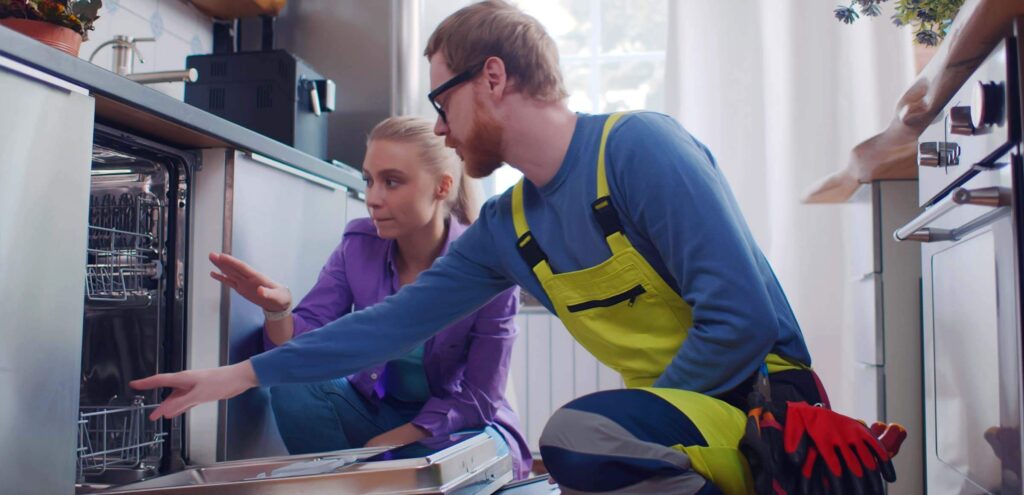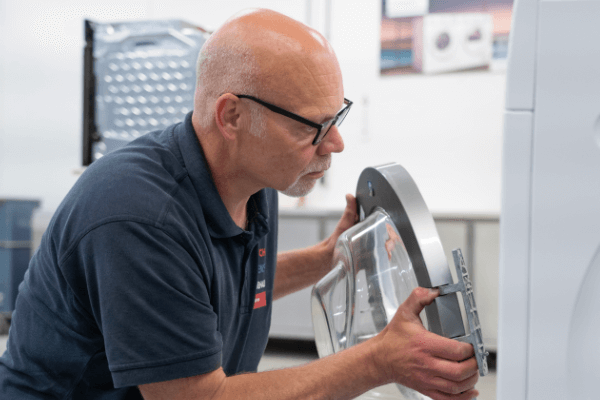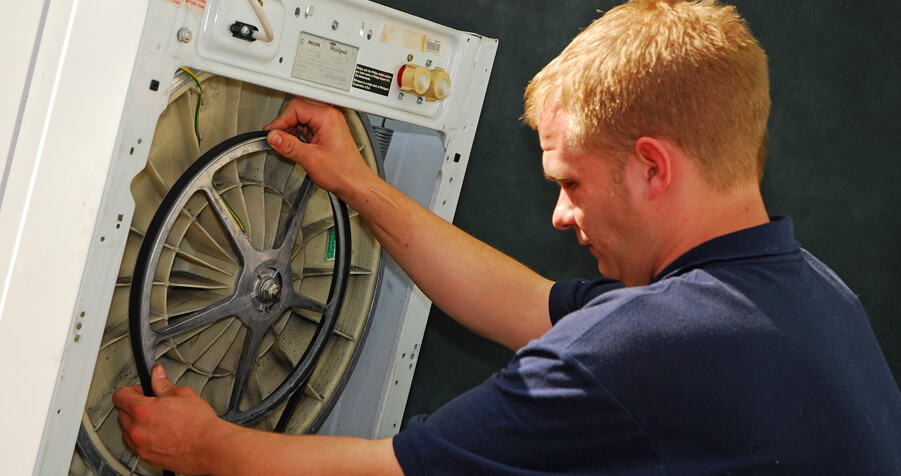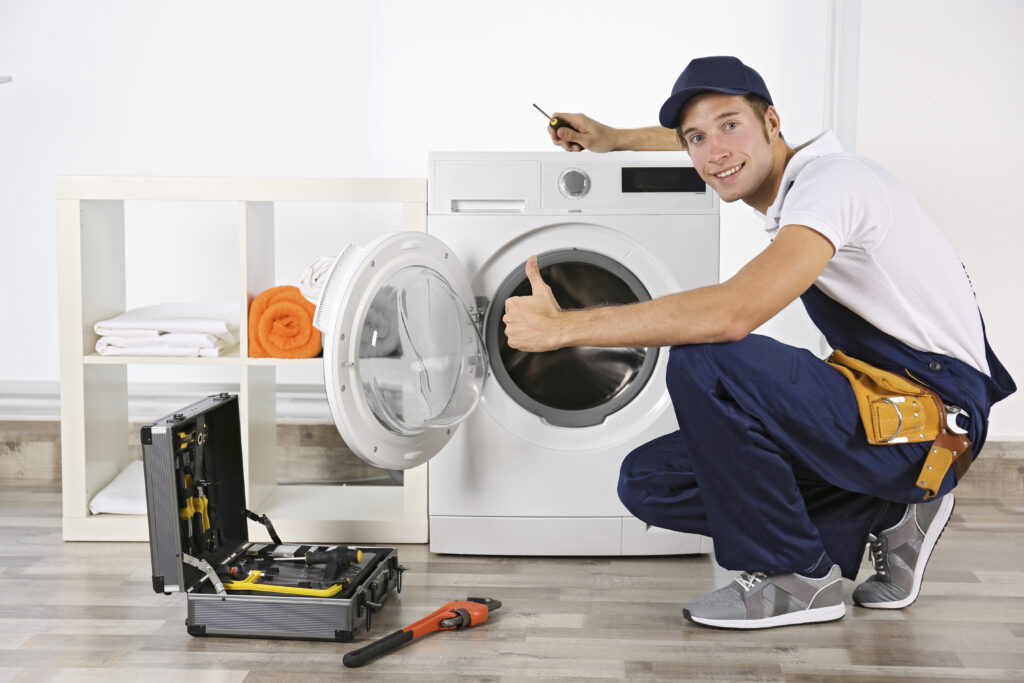
In our fast-paced world, where convenience often takes precedence over sustainability, it’s easy to overlook the environmental impact of our daily lives. One area that has a significant role in shaping our environmental footprint is our household appliances. From refrigerators to washing machines, these appliances are the unsung heroes that make our lives more comfortable. However, when they malfunction or show signs of wear and tear, what do we usually do? Rush out to buy a brand-new replacement, right? But is that the most sustainable choice?
This comprehensive guide delves deep into the multifaceted role of appliance repair in sustainability, offering a detailed exploration of how simple fixes can create a significant impact. So, grab a cup of coffee and let’s dive into this sustainable journey.
Why Do Appliances Matter in Sustainability?
Before we delve into the role of appliance repair, let’s understand why household appliances matter so much in the sustainability equation. Here are some compelling reasons:
- Energy Efficiency Matters: When it comes to sustainability, energy efficiency is a vital factor. Older or malfunctioning appliances tend to be energy hogs, consuming more electricity and contributing to higher energy bills and increased greenhouse gas emissions. Energy-efficient appliances can make a substantial difference in reducing our carbon footprint.
- Resource Conservation is Key: Manufacturing new appliances consumes vast quantities of valuable resources, including raw materials and energy. Repairing and extending the lifespan of existing appliances reduces the demand for new ones. This reduction in resource consumption is crucial for a sustainable future.
- The Perils of E-Waste: Electronic waste, or e-waste, is a growing environmental concern. When appliances are discarded, they often end up in landfills, taking up space and posing environmental hazards due to the hazardous materials found in electronics. Repairing appliances keeps them out of the landfill and minimizes e-waste.
The Environmental Impact of Appliance Repair

Now that we’ve established why appliances matter in sustainability, let’s explore the environmental impact of choosing repair over replacement:
- Reduces Carbon Footprint: One of the most direct ways repairing appliances contributes to sustainability is by reducing the carbon footprint. When you repair your appliances, you keep them in service, which means you reduce the need for manufacturing new ones. This, in turn, cuts down on the carbon emissions associated with production.
- Minimizes E-Waste: Repairing appliances keeps them out of landfills, where they can leach hazardous materials into the environment. By extending the lifespan of appliances, you contribute to a decrease in the amount of electronic waste and its harmful environmental consequences.
- Preserves Resources: Repairing appliances conserves resources. Extending the life of an appliance means fewer resources are required to create replacements. This resource conservation is crucial for a sustainable future. It not only reduces environmental impact but also conserves valuable materials for future generations.
Appliance Repair: A Sustainable Choice
Repairing your appliances isn’t just environmentally responsible; it’s also a smart financial decision. Let’s delve into the reasons why opting for appliance repair can be a win-win situation:
- Cost-Effective Solution: Repairing appliances is often a fraction of the cost of purchasing new ones. It’s a practical way to save money while simultaneously reducing your environmental impact. Repair bills are usually significantly lower than the cost of buying a brand-new appliance.
- Longevity of Appliances: A well-maintained and repaired appliance can last for years beyond its expected lifespan. This means you get more value for your initial investment. Appliances are a significant financial commitment, and extending their lifespan through repair can have a substantial positive impact on your budget.
- Boosting the Local Economy: Supporting local appliance repair businesses is another way to contribute to sustainability. Local businesses often have a smaller carbon footprint compared to large corporations, and supporting them is a boost to your community’s economy. Your choice to repair locally keeps money in your neighborhood.
DIY vs. Professional Repairs
When an appliance breaks down, many of us consider DIY repair as a cost-effective option. While it’s true that some repairs can be successfully completed by the handy homeowner, it’s essential to weigh the pros and cons:
- Skill Level Matters: Assess your own skills and comfort level with the repair. Some tasks may require professional expertise to avoid costly mistakes. While you can handle simple fixes, complex issues may be best left to the experts.
- Safety First: Safety should be a top priority when considering DIY repairs. Some appliance repairs involve electricity and gas, so make sure you’re well-versed in safety precautions. If you’re not, it’s safer to entrust the job to a professional.
- Warranty Consideration: If your appliance is under warranty, attempting DIY repairs might void the warranty. Check your warranty terms carefully. In such cases, it’s usually wiser to have repairs done by authorized service providers.
- Tools and Equipment: Consider whether you have the necessary tools and equipment for the job. Some repairs may require specialized tools that you may not already possess. Investing in these tools for a one-time fix might not be cost-effective.
In many cases, it’s best to call in a professional. They have the knowledge, experience, and tools to get the job done correctly and safely. Professional repairs often come with warranties, giving you peace of mind.
Choosing Sustainable Appliance Repair Services

Not all appliance repair services are equal when it comes to sustainability. To make an eco-friendly choice, consider the following tips:
- Support Local and Independent Businesses: Local and independent repair businesses often have a smaller carbon footprint compared to large corporations. Supporting local businesses is not just good for the environment but also a boost to your community’s economy.
- Quality Parts: Look for repair services that use high-quality, durable replacement parts. Using subpar parts can lead to more frequent breakdowns and the need for additional repairs. High-quality parts ensure your appliance has a longer lifespan.
- Eco-Friendly Practices: Some repair shops focus on eco-friendly practices. They may recycle old parts, minimize waste, and implement sustainable measures in their operations. These businesses contribute to a greener and more sustainable future.
- Customer Reviews and Recommendations: To find a reliable and sustainable repair service, check online reviews and ask for recommendations from friends, family, or colleagues. Real-world experiences often provide valuable insights into the quality of service provided.
Common Appliance Issues and Repairs
Now that we’ve explored the importance of appliance repair and choosing the right repair service, let’s get practical. What are some common appliance problems and potential solutions? Here’s a detailed list of issues and their corresponding repair options.
Refrigerator:
- Common Issues: Not cooling properly, leaking water.
- Possible Repairs: Evaporator fan replacement, defrost timer repair, thermostat replacement, and cleaning condenser coils.
Washing Machine:
- Common Issues: Not spinning, leaking.
- Possible Repairs: Belt replacement, hose repair, pump repair, and door seal replacement.
Dishwasher:
- Common Issues: Not draining, not cleaning dishes.
- Possible Repairs: Pump repair, filter replacement, and checking for clogs in the drain.
Oven/Range:
- Common Issues: Uneven heating, not igniting.
- Possible Repairs: Heating element replacement, ignition system repair, and calibration.
Microwave:
- Common Issues: Not heating, making strange noises.
- Possible Repairs: Magnetron replacement, turntable repair, and checking for damaged door switches.
Remember, when dealing with appliances, safety should always be a top priority. If you’re unsure about any repair, it’s best to consult a professional. DIY repairs can save you money, but they can also lead to costly mistakes if you’re not confident in your skills.
The Future of Appliance Sustainability
As we look ahead, the appliance industry is making strides in sustainability. Manufacturers are designing products with energy efficiency and longevity in mind. Let’s explore some key developments shaping the future of appliance sustainability:
- Energy-Efficient Designs: Appliance manufacturers are increasingly focusing on designing products that are energy-efficient. This includes using advanced insulation materials, optimizing cooling systems, and incorporating energy-saving features like LED lighting and smart controls. These innovations not only reduce energy consumption but also lower utility bills for consumers.
- Modular and Repairable Appliances: A promising trend in the appliance industry is the move towards modular and repairable designs. Some companies are embracing the idea of making appliances with easily replaceable components. This approach allows for more extended product lifespans, reducing the need for frequent replacements.
- Eco-Friendly Materials: Sustainable materials are becoming more prevalent in appliance manufacturing. Companies are experimenting with materials that are both durable and environmentally friendly. For example, using recycled plastics and reducing the use of harmful chemicals in appliance production.
- Consumer Advocacy for Sustainability: As consumers, we have a significant role to play in promoting appliance sustainability. By supporting eco-conscious brands and advocating for extended product lifespans, we can drive the industry toward more environmentally responsible practices. This can include choosing products with energy-efficient labels and supporting repair-friendly designs.
Final Words
The role of appliance repair in sustainability is undeniable. Repairing appliances is a cost-effective, environmentally responsible choice that can extend the life of your devices while reducing your carbon footprint. It’s a small change with a big impact, and it’s a win-win situation for both your wallet and the planet.
So, the next time your refrigerator starts acting up or your washing machine is on the fritz, consider the sustainable option: repair, don’t replace. By making eco-conscious choices, we can all contribute to a greener, more sustainable future. Repairing our appliances is not only a way to save money but also a step toward preserving our planet for future generations.
Frequently Asked Questions (FAQ) – The Role of Appliance Repair in Sustainability
Got questions about the role of appliance repair in sustainability? We’ve got answers. Check out this FAQ to get all the information you need.
1. Why is appliance repair important for sustainability?
Appliance repair is crucial for sustainability because it helps in reducing the carbon footprint, minimizes electronic waste, and conserves valuable resources. Repairing appliances extends their lifespan, reducing the need for manufacturing new ones, which ultimately leads to a more sustainable future.
2. How does repairing appliances reduce the carbon footprint?
When appliances are repaired and kept in service, it reduces the need for manufacturing new ones. The manufacturing process is energy-intensive and results in carbon emissions. Repairing appliances helps in cutting down these emissions and conserving energy.
3. What is electronic waste (e-waste), and how does appliance repair minimize it?
Electronic waste, or e-waste, refers to discarded electronic devices. When appliances are thrown away, they often end up in landfills, where they can leach hazardous materials into the environment. Appliance repair keeps these devices out of landfills, reducing e-waste and its harmful environmental impact.
4. Is repairing appliances cost-effective?
Yes, repairing appliances is often more cost-effective than replacing them. Repair bills are typically a fraction of the cost of purchasing new appliances. It’s a practical way to save money while extending the life of your devices.
5. How can I determine if I should attempt a DIY repair or call a professional?
The decision between DIY and professional repair depends on your skills, the complexity of the repair, and safety concerns. Simple repairs, like changing a belt or cleaning coils, can often be done by homeowners. However, for complex or safety-sensitive repairs, it’s best to consult a professional.
6. Are there any safety precautions I should take if I attempt a DIY repair?
Yes, safety is paramount. Always disconnect appliances from power sources before attempting any repairs. Be cautious when dealing with electrical and gas components, and if you’re unsure about safety procedures, consult a professional.
7. Will attempting DIY repairs void my appliance’s warranty?
In some cases, yes. If your appliance is under warranty, making unauthorized repairs may void the warranty. Always check your warranty terms and consider professional repairs when warranty coverage is a concern.
8. What should I look for when choosing a sustainable appliance repair service?
When selecting an appliance repair service with sustainability in mind, consider factors like supporting local and independent businesses, the use of quality replacement parts, eco-friendly practices, and favorable customer reviews and recommendations.
9. Can you repair any appliance, or are there limitations?
Many household appliances can be repaired, but the feasibility of repair depends on the specific issue and the availability of replacement parts. Common appliances like refrigerators, washing machines, dishwashers, ovens, and microwaves are often repairable.
10. How can consumers promote appliance sustainability?
Consumers can promote appliance sustainability by choosing energy-efficient appliances, supporting brands that focus on sustainability, advocating for extended product lifespans, and properly disposing of old appliances by recycling or donating them.
11. What is the future of appliance sustainability?
The future of appliance sustainability is promising, with developments such as energy-efficient designs, modular and repairable appliances, the use of eco-friendly materials, and increasing consumer advocacy for sustainability. These trends are shaping a more environmentally responsible appliance industry.
